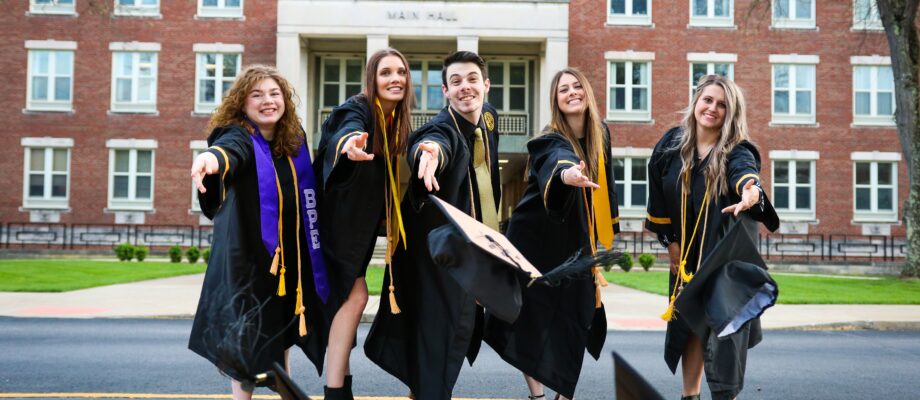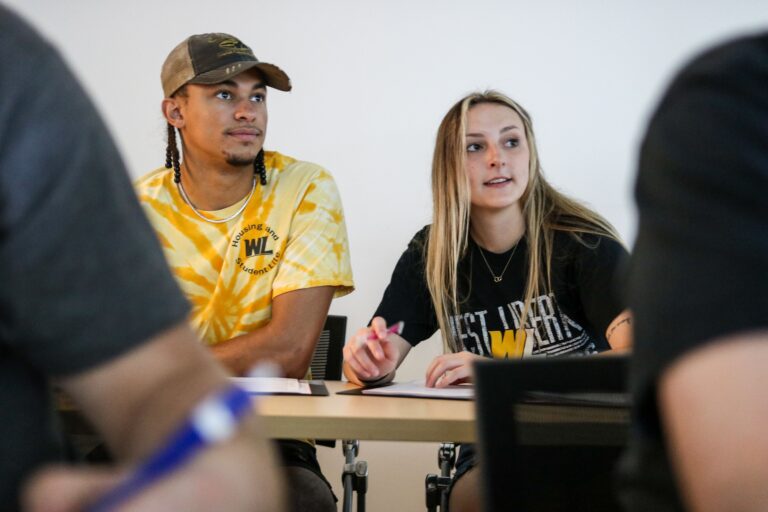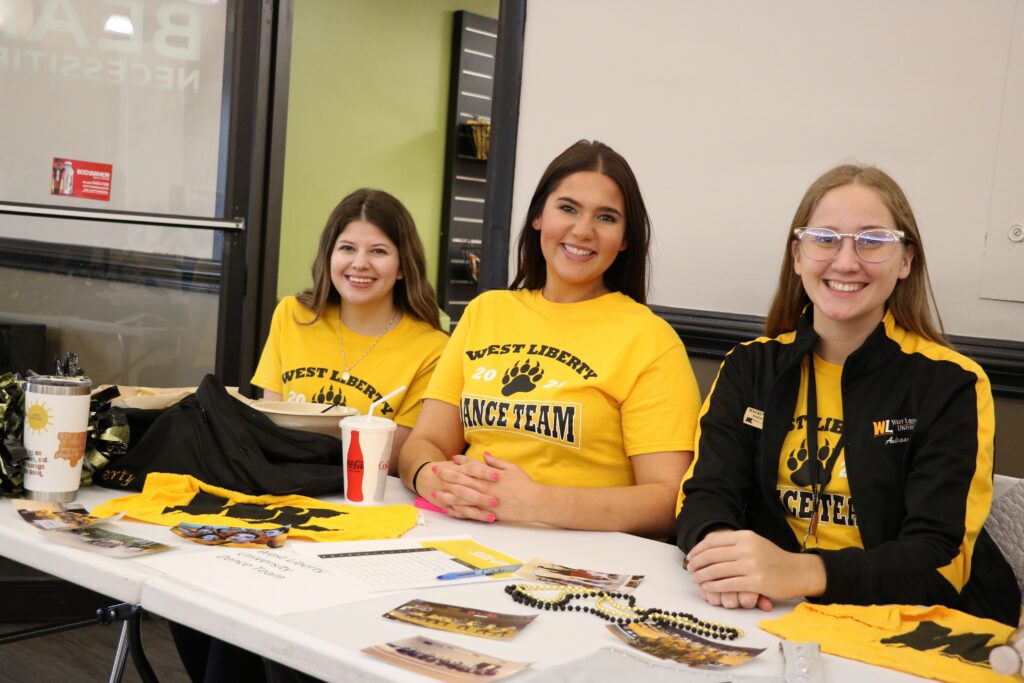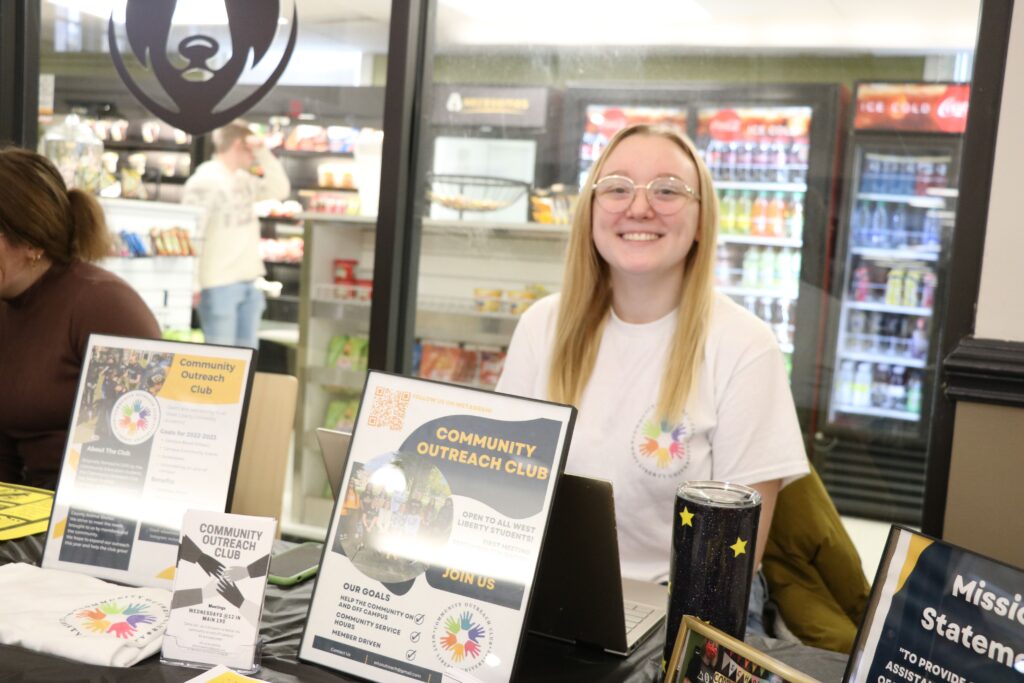
Mission, Vision and Values
Mission: West Liberty University is a public university with a rich history of providing students with a comprehensive education from undergraduate to graduate degrees. Through experiential learning and personalized support, we empower students toward scholarly exploration, creative expression, and economic opportunity.
Vision: West Liberty University aspires to offer innovative, inclusive, and inspirational opportunities that prepare graduates to be leaders in their communities and professions.
Values
- Community: WLU fosters a caring community of diverse students, faculty, and staff who work together to nurture a sense of belonging in a safe, supportive, and respectful environment.
- Excellence: WLU sets high standards for excellence through our commitment to promoting students’ aspirations and intellectual development, and our constant pursuit of knowledge, evidenced in nationally recognized programs and certifications.
- Innovation: WLU cultivates innovation among faculty, staff, and students. We believe in a forward-thinking mindset that embraces change as an opportunity for growth and improvement. Our commitment to innovation empowers our community to tackle complex challenges, drive meaningful progress, and shape the future.
- Integrity: WLU requires all students, faculty, staff, and administrators to act with integrity, treating everyone with respect, fairness, and dignity. We uphold the highest standards of honesty, ethics, and accountability in all aspects of our academic and professional endeavors.
Aspire Strategic Plan

Theme 1: Cultivating Excellence, Innovation and Continuous Improvement in Academic Programs
West Liberty University is responsive to the evolving changes in the demographics of our student population, the opportunities we have to expand our mission to new learners, and the needs of our local community. We empower our students for future success by challenging them to apply their learning in a variety of contexts that align with the best practices in higher education. To do so, we will achieve the following outcomes:
- Review academic programs, facilities, and technology to meet the evolving requirements and qualifications of high-demand occupations, ensuring students are well-prepared for the workforce.
- Develop and promote relevant educational programs catering to learners seeking upskilling opportunities.
- Develop and offer a variety of certificates and micro-credentials to complement majors and minors, enhancing students’ career prospects.
- Strengthen involvement in high impact practices such as student research initiatives, experiential learning, and global opportunities.
- Emphasize an integrated, intentional, and relevant General Education program as the cornerstone of our expansive undergraduate curriculum.
Theme 2: Supporting Student Growth & Success
West Liberty University is a community in which students can reach their full potential. We offer an opportunity-rich environment so that students explore their identities while they are supported by faculty, staff, and other students. To do so, we will achieve the following outcomes:
- Provide students, faculty, and staff a better understanding and connection to resources to support student success.
- Align curricular, co-curricular, and extra-curricular goals and outcomes in a way to serve student growth and development.
- Increase access to experiential learning opportunities and career development resources through collaboration with employer, community, and campus partners.
- Effectively use technology resources to elevate the student learning experience.
- Create environments where all students feel a sense of belonging and can explore their own identities and values.
- Develop strategies to increase the number of students completing 30, 60, and 90 credits each year.


Theme 3: Strengthening University Effectiveness
West Liberty University is an institution where its employees are able to make effective decisions, complete work efficiently, and grow and develop, all in service to students. We are effective communicators so that we can tell our story to our stakeholders in order to promote our successes. To do so, we will achieve the following outcomes:
- Use technology efficiently and effectively to increase our capacity.
- Develop a culture where decisions are based on research and data.
- Identify inefficiencies and revise policies and procedures that will enable faculty and staff to be more productive in their jobs.
- Encourage and engage in more communication across departments.
- Assess and evaluate our performance to identify areas of improvement.
- Provide enhanced opportunities and allocate resources for professional growth for employees.
- Foster a culture where employees feel a sense of belonging, empowerment, and engagement.
- Expand efforts to promote our brand promise and brand drivers.
- Improve the average contribution margin for academic programs.

Theme 4: Developing and Expanding Community Partnerships & Collaboration
West Liberty University has a mutually beneficial relationship with our region to serve our students but also the broader community. We are responsive to community needs while being mindful of the role our students can and will play in being leaders in their professions and communities. To do so, we will achieve the following outcomes:
- Build strong partnerships with the community, including business leaders and alumni, to develop career opportunities for our students.
- Prioritize students gaining valuable experience before entering the workforce through a variety of experiential learning opportunities in the local area.
- Expand partnerships with area schools to provide guidance to college-bound students.
Measuring Our Progress
Data will be available in the coming months to measure our progress on key benchmarks from the plan.
Strategic Planning Process
Aspire 2030 is the result of a transparent, data-driven process through which the West Liberty campus and key stakeholders were engaged in a year-long conversation about the future of the University.
The planning process was led by the Strategic Planning Committee which met 10 times during the 2023-24 academic year. Several key engagements with stakeholder groups informed the committee’s work throughout the year, including:
- President Borchers met with more than 170 individuals and small groups during the first 100 days of his presidency to hear concerns, ideas, and suggestions for improvements. The report of his listening sessions, “100 Days on the Hilltop,” served a key source of data for the plan.
- An Environmental Scan was prepared and shared with campus groups in XX sessions, including virtual sessions with Board of Governors and Foundation Board members.
- “Differentiation Workshop” were held with XX campus groups including academic and administrative departments, Staff Council, undergraduate and graduate students, the Board of Governors, the Foundation Board, and the Wheeling area community.
- Three surveys of campus were conducted to gain feedback about the revised mission and vision, core values, main themes, and outcomes.
- In addition to surveys, in person consultations were held with Faculty Senate, Staff Council, and the Student Government Association.
- Regular updates were shared via email with the campus and in regular meetings with the President’s Council.
Following endorsement by the President’s Cabinet, the strategic plan was approved by the West Liberty University Board of Governors on June 5, 2024.
Implementation of the plan began during the summer of 2024 with several initiatives. The University Planning Committee will be appointed and convened in the Fall 2024 semester to monitor the plan’s implementation and make recommendations for future initiatives on an annual basis.
Strategic Planning Committee
Tim Borchers, President (Tri-Chair)
Michelle Panepucci, Director of Admissions Operations (Tri-Chair)
Sherry Rocchio, Faculty in Gary E. West College of Business (Tri-Chair)
Kate Billings, Director of Student Activities/Title IX Coordinator
Hilary Bougher-Muckian, Faculty in College of Education and Human Performance
Eric Burkle, Head Baseball Coach and Staff Council Chair
Cyndi Galloway, Executive Assistant to the President
Greg Chase, Faculty Senate Representative
Lori Hudson, Vice President for Fiscal Affairs
Katie Kacmarik, Foundation Board Member
Cecilia Konchar Farr, Dean of Creative and Liberal Arts
Merilee Madera, Director of Distance Education
Jenna Maguire, Student Government Association President
David McKinley, Board of Governors Chair
Aron Massey, Faculty in College of Creative and Liberal Arts
Holly Racine, Faculty in College of Sciences
Ross Salvatori, Topper Association of Graduate Students President
Cassandra Seth, Associate Head Women’s Basketball Coach/Senior Woman’s Administrator
Sherri Theaker, Dean of Graduate Studies
Sarah West, Director of Institutional Research and Effectiveness